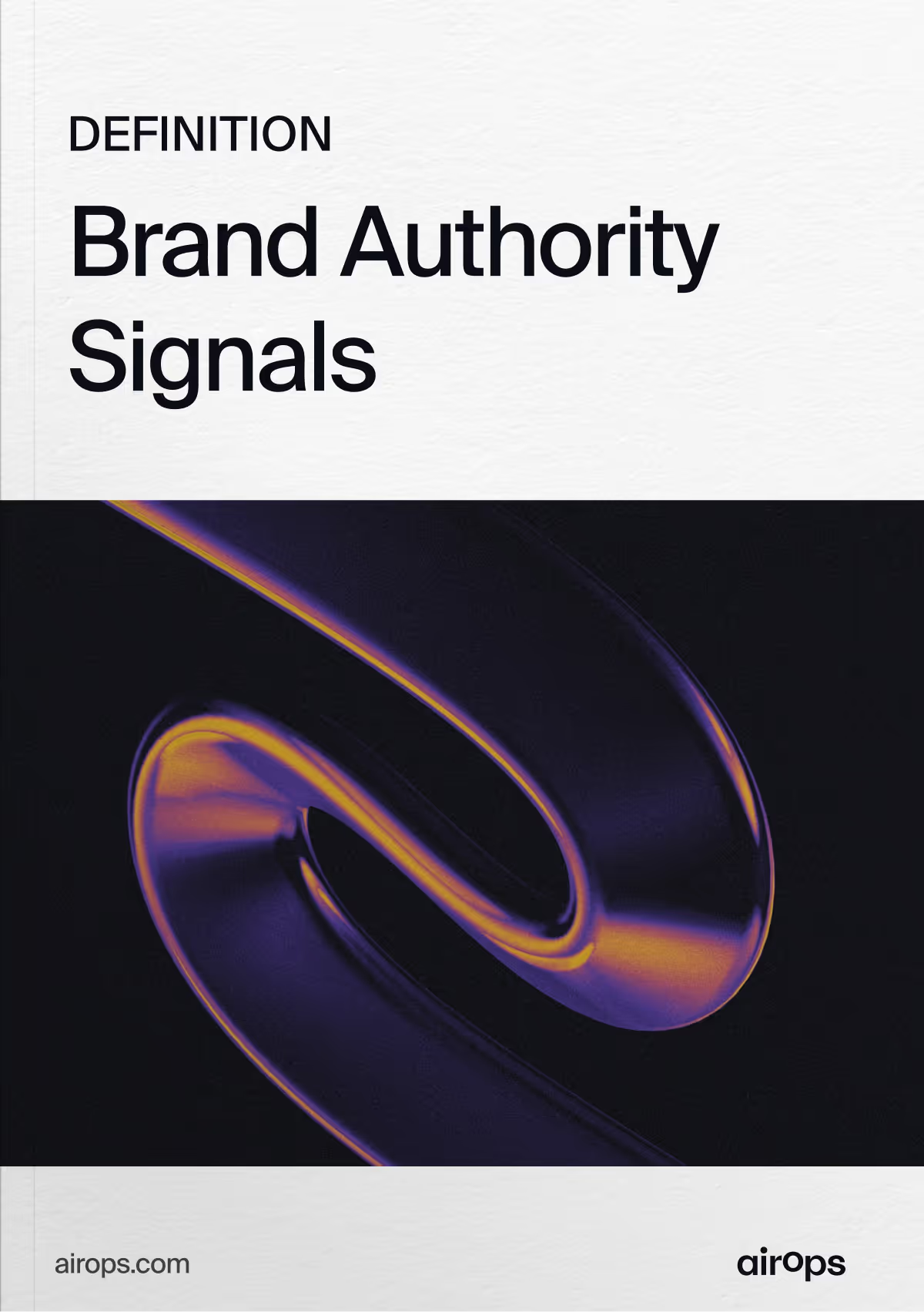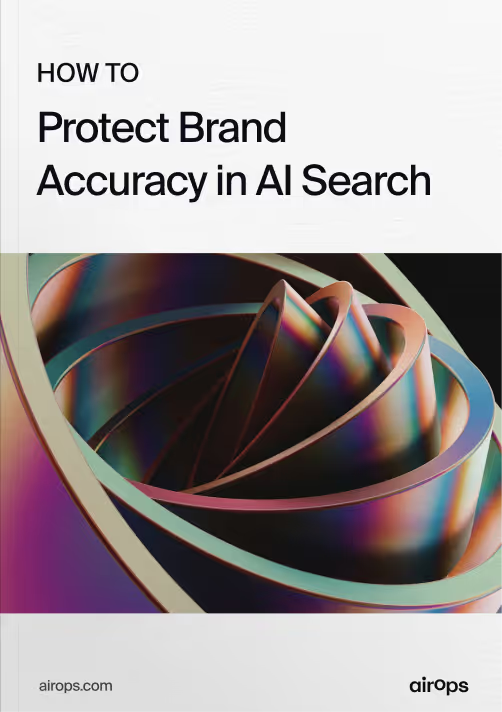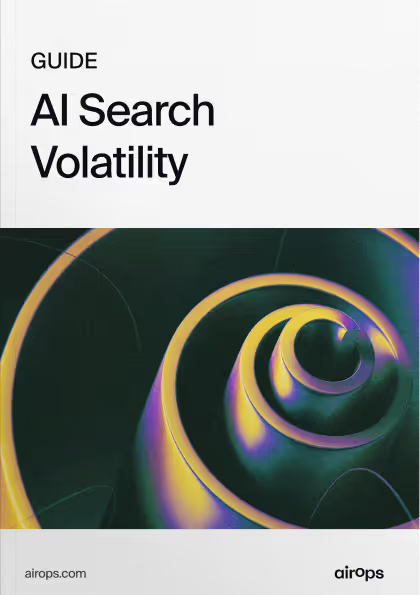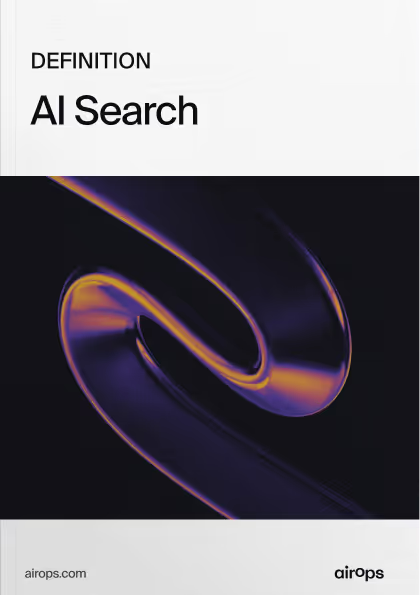What Are Brand Authority Signals?

What Are Brand Authority Signals?
Brand authority signals are the on-site and off-site proof points—such as reviews, backlinks, and brand mentions—that show search engines, AI platforms, and audiences your brand is credible, trustworthy, and authoritative in its field.
Complete Definition:
Brand authority signals are measurable indicators that reflect a brand’s credibility, trustworthiness, and expertise. They capture how a brand is recognized and validated beyond its own website—through positive coverage, authoritative backlinks, consistent brand mentions, branded search activity, and other signs of trust.
These signals influence which brands search engines and AI platforms choose to feature, cite, or recommend. Strong authority signals not only boost rankings in traditional search but also increase the likelihood of appearing in AI-generated answers and zero-click results—where visibility is often all-or-nothing.
Brand authority signals typically reflect three core qualities:
- Credibility: Recognition and validation from reputable third parties.
- Trustworthiness: Consistent, positive engagement and sentiment across digital channels.
- Expertise: Clear demonstration of industry knowledge and leadership.
How Are Brand Authority Signals Different from Domain Authority?
Brand authority signals measure real-world trust and expertise across multiple platforms, while domain authority is a technical SEO metric focused on a site’s backlink profile and ranking potential. Domain authority predicts how well a site might rank in search results, whereas brand authority signals encompass a broader mix of cues that reflect the genuine reputation and influence of the brand.
Types of Brand Authority Signals
Authority signals fall into three main categories: off-page, on-page, and search behavior signals. Each type influence how search engines and AI platforms evaluate your credibility, trustworthiness, and expertise.
Off-Page Signals
Off-page signals are generated by third parties contribute to brand sentiment and reflect how others perceive and validate your brand. Some examples off-page signals include:
- High-Quality Backlinks: Editorial links from reputable, relevant domains.
- Media Coverage: Brand Mentions in trusted publications, industry blogs, and press releases (including unlinked mentions).
- Expert Citations: References by recognized industry figures or organizations.
- Awards & Certifications: Accreditations that reinforce credibility.
- Customer Reviews: Positive ratings on platforms like Google, Trustpilot, and G2.
- Share of Voice: Your brand’s proportion of mentions or citations compared to competitors in your niche.
On-Page Signals
On-page signals are within your control and demonstrate expertise, transparency, and consistency. Some examples of on-page signals include:
- Authoritative Content: Well-researched, factually accurate, and original content.
- Author Bios: Verified credentials, linked profiles, and visible subject matter expertise of the author.
- Content Freshness: Regular updates that keep information relevant and accurate.
- Site Quality: A secure, well-designed, and user-friendly website that follows technical best practices (sequential heading hierarchy, formatting, site responsiveness, clear navigation, etc)
- Structured Data: Schema markup that helps search engines and AI clearly understand the content on the page.
Search Behavior Signals
Search behavior signals show how audiences actively seek and interact with your brand. Examples of these signals include:
- Branded Search Volume: The number of people searching specifically for your brand or products.
- Click-Through Rates: How often searchers choose your site over others for branded queries.
- Brand Demand Trends: Growth in branded searches over time.
Why Are Brand Authority Signals Important?
Brand authority signals shape how search engines and AI systems decide which sources to highlight, cite, or recommend. They influence whether your brand is seen as credible and authoritative across the web.
- SEO and AEO Impact: Authority signals improve your chances of ranking highly and being cited in AI-generated results.
- AI Visibility: Strong authority signals help your brand appear in zero-click environments such as AI Overviews, ChatGPT, and Perplexity, where users increasingly find answers without visiting traditional search results.
- Competitive Advantage: Sustained authority signals create a brand moat that competitors struggle to replicate. They represent long-term credibility earned through consistent expertise, accuracy, and recognition.
- Trust and Conversion: When users repeatedly encounter consistent, credible mentions—like expert quotes, positive reviews, or trusted media coverage—it builds confidence and makes them more likely to engage or convert.
According to AirOps recent research, 85% of brand mentions in early-stage discovery queries come from third-party sources, showing that external validation plays a larger role in visibility than owned content alone.
In short, authority signals connect visibility with trust. They can influence not just how often your brand appears, but how confidently it is chosen and referenced across both traditional and AI-driven discovery.
Where Authority Signals Influence Organic Search
Brand Authority signals shape how both users and AI systems interpret credibility, relevance, and expertise. These signals directly influence the environments where discovery and decision-making happen most:
Search Engine Results Pages (SERPs):
Authority determines prominence. Search engines prioritize content that reflects topical expertise and strong external validation. Backlinks, author profiles, and engagement signals influence which pages earn featured snippets, knowledge panels, and top organic positions.
AI Overviews and Answer Engines:
AI systems like ChatGPT, Perplexity, and Google’s AI Overviews detect and weigh authority through citations and contextual relevance. Brands consistently referenced by reputable third-party sources are more likely to be surfaced or cited within AI-generated responses.
Citations and Brand Mentions:
Every reference across reviews, media coverage, and forums acts as a reinforcement loop for authority. High-quality third-party mentions validate claims made on owned channels, signaling credibility to both users and AI systems.
Knowledge Graphs:
Structured data and semantic relationships define how AI systems understand a brand. Accurate schema markup, consistent entity naming, and cross-referenced connections strengthen how confidently search engines and answer engines represent your brand in contextual results.
According to AirOps research, brands with strong authority signals are up to 3x more likely to be cited in AI-generated answers and featured snippets.
FAQs
How do brand authority signals affect whether a brand is cited in AI-generated answers?
Brand authority signals help AI systems decide which sources are credible enough to reference when generating answers. Signals like third-party mentions, authoritative backlinks, consistent expert citations, and positive sentiment indicate that a brand is trusted beyond its own site. When these signals are strong and consistent, AI platforms are more likely to surface or cite the brand as a reliable source in answers and zero-click results.
Are brand authority signals more important than domain authority for AI search visibility?
Brand authority signals and domain authority measure different things, but brand authority plays a broader role in AI search. Domain authority focuses on backlink strength and ranking potential, while brand authority reflects real-world trust, recognition, and expertise across multiple platforms. AI systems tend to rely more on these broader trust signals when deciding which brands to reference, especially in generative answers where credibility matters more than traditional ranking metrics.
Can strong on-page content compensate for weak off-page brand authority signals?
High-quality on-page content helps demonstrate expertise, but it rarely replaces the impact of external validation. AI systems look for confirmation that a brand’s claims and knowledge are recognized by others through mentions, citations, reviews, and media coverage. Brands with strong off-page authority signals are more likely to be consistently cited, even when competing against similar content, because external trust reinforces the credibility of what appears on the page.
Win AI Search.
Increase brand visibility across AI search and Google with the only platform taking you from insights to action.
Table of Contents
Get the best and latest in growth and AI search delivered to your inbox each week.




